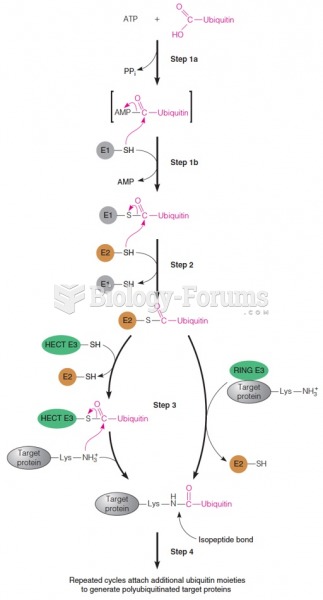|
|
|
The cure for trichomoniasis is easy as long as the patient does not drink alcoholic beverages for 24 hours. Just a single dose of medication is needed to rid the body of the disease. However, without proper precautions, an individual may contract the disease repeatedly. In fact, most people develop trichomoniasis again within three months of their last treatment.
On average, the stomach produces 2 L of hydrochloric acid per day.
Many of the drugs used by neuroscientists are derived from toxic plants and venomous animals (such as snakes, spiders, snails, and puffer fish).
Green tea is able to stop the scent of garlic or onion from causing bad breath.
Alzheimer's disease affects only about 10% of people older than 65 years of age. Most forms of decreased mental function and dementia are caused by disuse (letting the mind get lazy).
 Attachment of transmembrane proteins to the cytoskeleton and extracellular matrix of an animal cell.
Attachment of transmembrane proteins to the cytoskeleton and extracellular matrix of an animal cell.
 (a) The phagocytic process, beginning in the upper left with bacterial attachment and phagocytic ...
(a) The phagocytic process, beginning in the upper left with bacterial attachment and phagocytic ...





